- Arakan residents call for air raid warning systems amid surge in junta airstrikes
- Arakan’s Breathing Space (or) Mizoram–Arakan Trade and Business
- Death toll rises to 18 after junta airstrike on Ponnagyun village market
- Regime arrests dozens of Muslims in Sittwe over alleged Arakan Army links
- Over 200 IDPs in Ponnagyun struggle without shelter, food aid
Few see alternative to escalation of conflict in Arakan State
The Myanmar junta, which continues to lose bases and towns to the AA, is currently carrying out airstrikes on AA-controlled areas and public gatherings in Arakan State, and civilian casualties are mounting.
14 Sep 2024
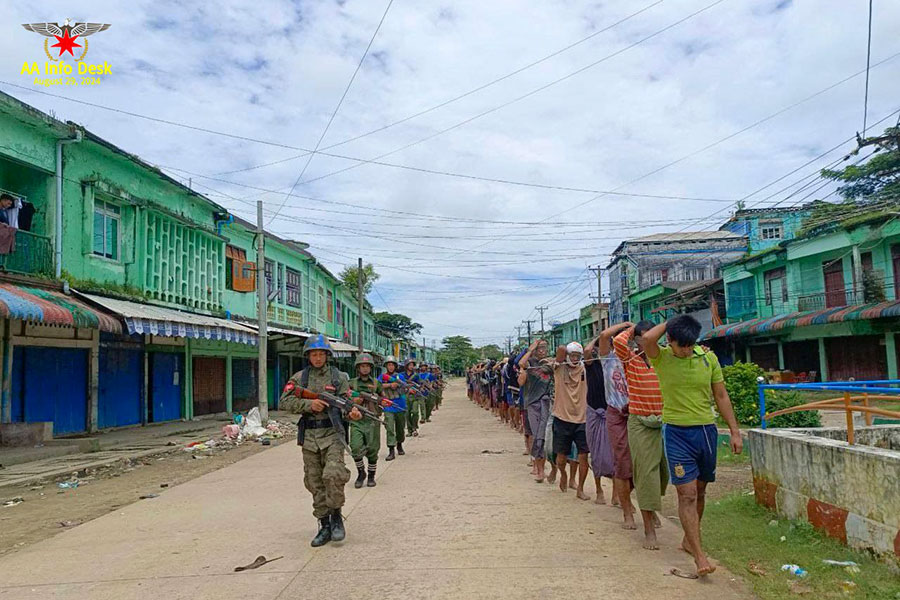
DMG Newsroom
14 September 2024, Sittwe
It has been 10 months since the Myanmar military clashed with the Arakkha Army (AA) in Arakan State on November 13, 2023, with the AA so far seizing control of 10 towns in Arakan State and Paletwa Township in neighbouring Chin State since the latest fighting began.
The AA has said that it will continue to attack the remaining townships under the control of the military regime in Arakan State, and political analysts predict that the conflict is likely to only intensify, given the stakes and the junta's diminishing territorial hold on the contested areas in question.
The AA commander-in-chief announced in April that the group has its sights set on control of the entirety of Arakan State, and is willing to engage in armed hostilities to make the state a junta-free zone.
"The regime will lose Maungdaw to the AA sooner or later," said U Pe Than, a military and political analyst, and former lawmaker in Arakan State. "Taungup, Ann, Kyaukphyu, Sittwe, Gwa and Manaung are still under the control of the military regime. The AA is expected to launch offensive attacks on the towns that remain under the control of the military regime."
Clashes are indeed escalating in Maungdaw, Gwa and Ann townships, and military tensions between the military and AA are running high in Taungup and Sittwe as well, locals say. Sittwe and Taungup are besieged by the AA, where the regime has prepared defensive measures and bolstered its troops' presence.
The Myanmar junta, which continues to lose bases and towns to the AA, is currently carrying out airstrikes on AA-controlled areas and public gatherings in Arakan State, and civilian casualties are mounting.
Commodities are in short supply or have run out completely in many Arakan State townships, with locals facing shortages of food and medicines due to junta blockades affecting the vast majority of Arakan State.
"We have real medicine problems," a doctor in Arakan State told DMG. "There are problems with not being able to find medicines due to the junta travel restrictions. We are faced with cases where even critical patients cannot be treated. Due to the high cost of medicine, patients who cannot afford it even die."
In addition to medicine shortages burdening chronically ill patients, skin ailments, influenza and other diseases are also common during the rainy season, residents and doctors note.
Hundreds of thousands of civilians have been displaced by the fighting since November.
Many of these internally displaced people (IDPs) are suffering from a lack of humanitarian aid, few employment opportunities and unprecedentedly high prices for basic commodities. The result is short-term hunger among many populations, and the potential for a more long-term food crisis statewide.
"We have a lot of difficulties. We don't have jobs, so it's hard to make ends meet. Our hope is that everyone wants to be peaceful. We don't get any help," said Daw Khin May Nu, an IDP woman from Sittwe who is currently sheltering in Kyauktaw Township.
Civil society organisations that support IDPs and address emergent social issues in the region are also struggling to operate normally.
"Social organisations need a lot of support. Our difficulties are lack of support and lack of funds. Now that commodity prices are rising and politics are changing, most social organisations are no longer able to operate," said Ko Pyae Phyo Naing, chairman of the Ponnagyun Youths Association.
As many local charities have ceased operations, IDPs and local people are in urgent need of social and healthcare assistance.
Businessmen in Arakan State have said that the Arakan State economy was already in a downward post-coup spiral, which has been exacerbated by the renewed fighting and the junta blockades to regular commerce that followed.
Arakanese merchants who trade between mainland Myanmar, the state of Mizoram in neighbouring India and Arakan State say that because these are often not official trade routes, travel delays and high costs are having far-reaching economic impacts.
"Merchants trade with people they trust. Some are standing by the situation. According to the current situation, if we jointly solve the shortages of food, consumer goods and medicine, we can say that there will be no difficulties for Arakan State," asserted a veteran businessman in Arakan State, offering an optimistic assessment of the future that it's fair to say is not widely shared at present.




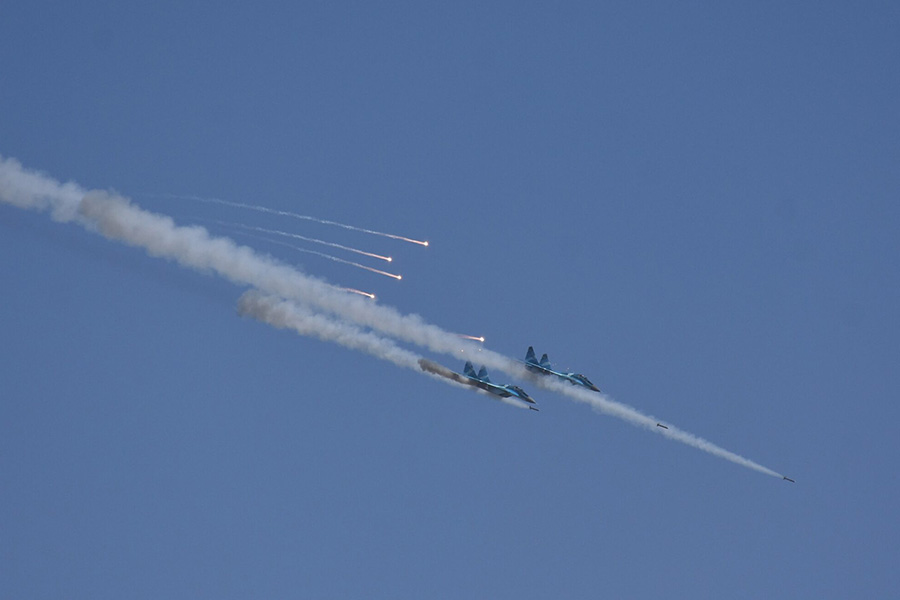
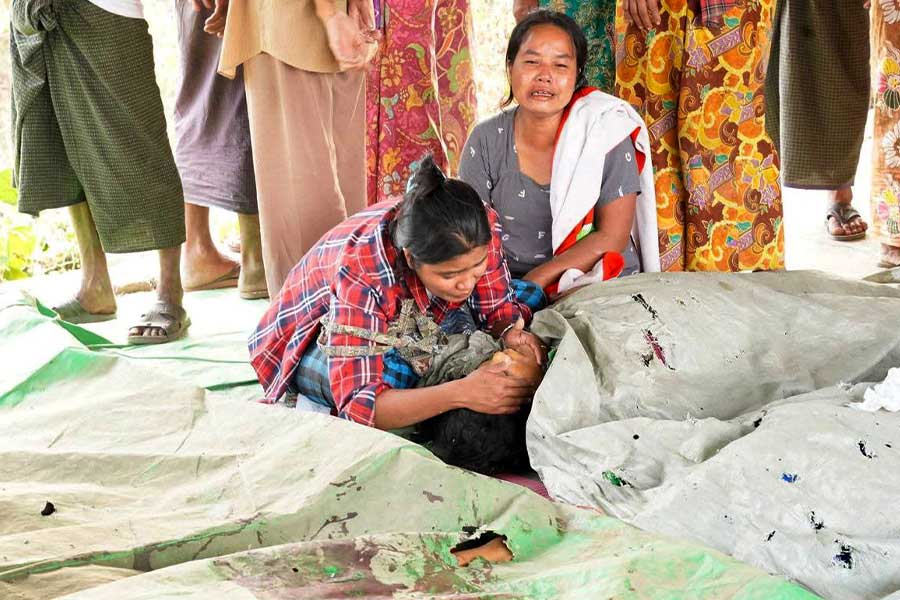
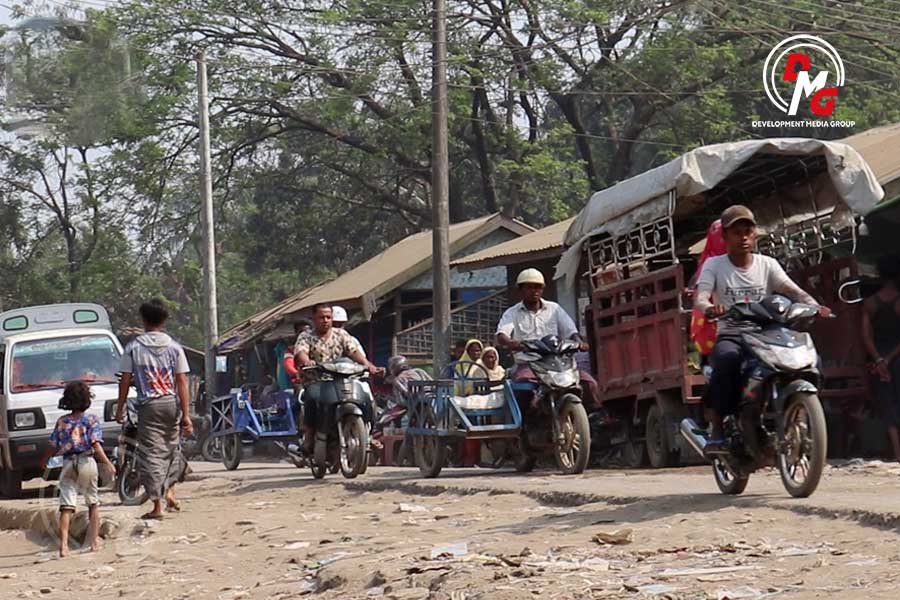
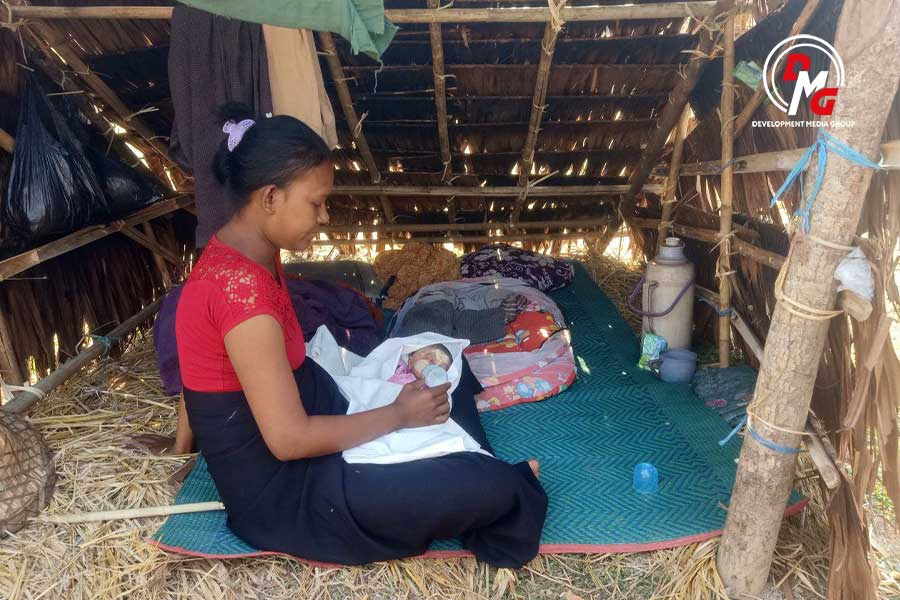
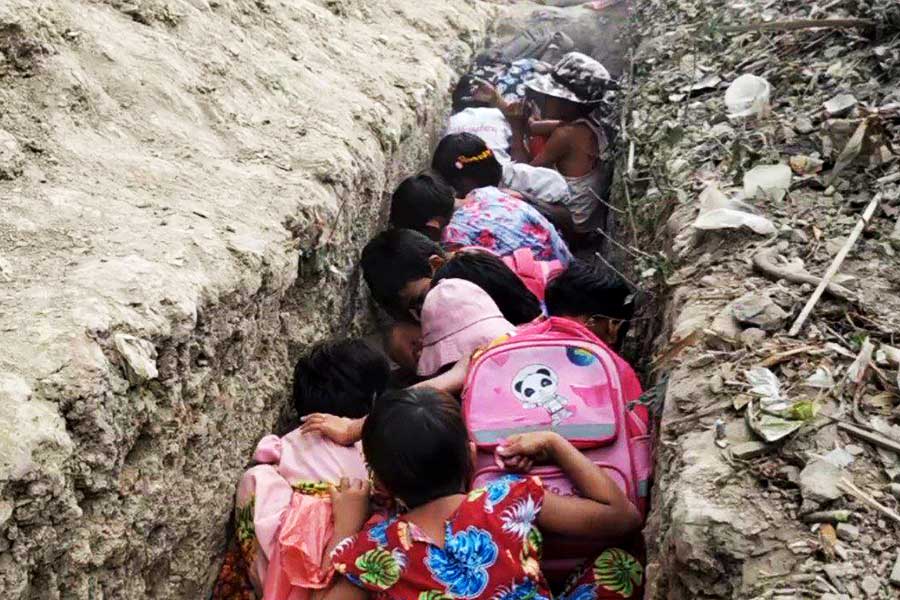








.jpg)